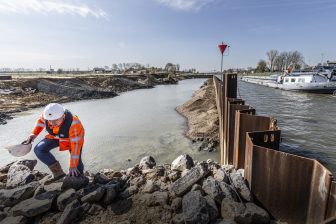Harmonized system road tolls with voluntary standards
Brussels – During an Open Meeting in Brussels, key parties interested in the development of electronic fee collection were consulted on a study concerning road toll systems for cars and lorries.
Equipment and vehicle manufacturers, software houses, infrastructure service providers and public authorities discussed the recent study, entitled ‘Interim Electronic Fee Collection Standardization Report’, published by the three European Standardization Organizations (ESOs) – CEN, CENELEC and ETSI.
These discussions will lead to an assessment of the market relevance of the initial proposals, and ensure that no significant items for standardization are missing.
“Standards are sometimes regarded as too slow or longwinded” said Cathy Jenkins, Chair of the meeting, “but they bring benefits to everyone in terms of interoperability, increased competition, and trust and confidence in products. The challenge will be to deliver these benefits within the timescales laid down by the market.” She encouraged interested parties to provide as much feedback as possible on the interim report, which will help to bridge the gap between the strategic context and standardization work. “This will bring benefits in terms of better transport systems and stronger industrial competitiveness” she added.
The study was commissioned by the European Standards Organizations in response to Mandate M/338 issued by the European Commission and EFTA. It is the first step in the process of defining a detailed work programme which will provide all the necessary standards to support the European Electronic Toll Service (EETS).
The study identified a need for standardization in the following fields:
• functionality of European On-Board Equipment (EOBU) designed to support the requirements of the European Electronic Toll Service
• communications between the EOBU and the central equipment
• communications between central equipment and the contract issuer
• communications between the EOBU and the user (HMI)
Directive 2004/52/EC on the interoperability of road toll systems across Europe was adopted in April 2004. The Directive includes a range of activities intended to lead to agreement on the definition of the EETS by July 2006. The study provides an analysis of many of the issues surrounding the EETS and provides a recommended approach to the development of a standardization work programme.
The draft of such a programme, expected to cover major market needs for standards up to the end of the decade, is being finalized by the relevant technical body within the three European Standardization Organizations and will be submitted for approval to the respective Technical Boards before a response is given to the EC and EFTA mandate.
U las zojuist één van de gratis premium artikelen
Onbeperkt lezen? Profiteer nu van de introductieaanbieding voor € 10,- per maand.
Bent u al abonnee?



